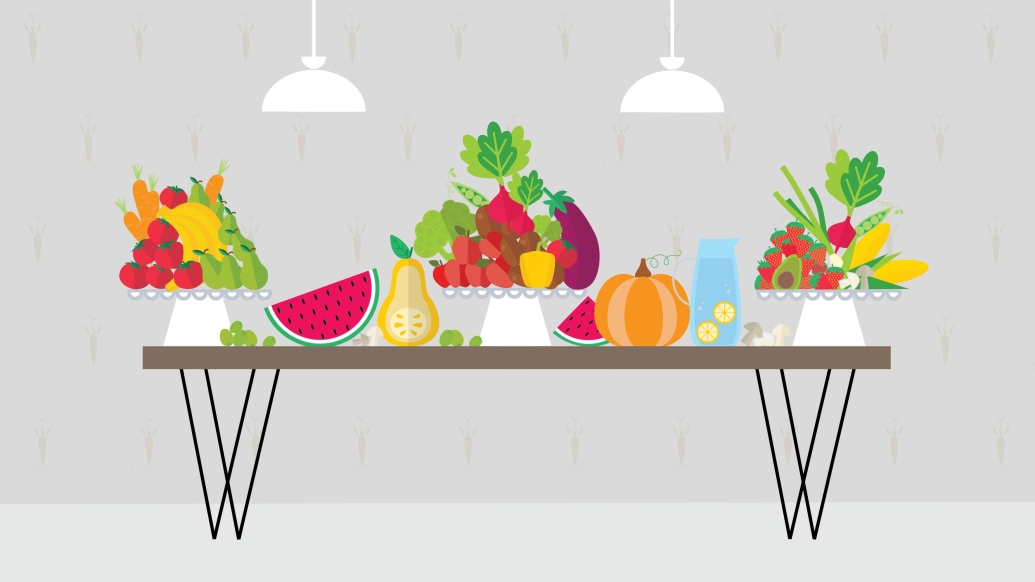When it comes to meals and snacking, it’s important to go green. Why boosting your fruit and vegetable intake matters.
1:00 PM
Author |

Vegetarian and plant-based diets have been gaining popularity with athletes, celebrities and everyday folks across the globe. Although this trend has been on the rise for some time, it's important to know the facts about dietary options and how to enjoy them properly.
SEE ALSO: The 10 Most Addictive Junk Foods
A plant-based diet, according to the American Institute of Cancer Research, means that two-thirds of what's on your plate consists of plant foods. These foods include vegetables, fruits, grains, beans, nuts and seeds. A vegetarian diet, by comparison, is defined by the exclusion of all meat products, including fish.
Plant-based and vegetarian diets supply ample amounts of the dietary fiber, antioxidants and phytochemicals (compounds that help protect cells in the body from damage) recommended to promote overall health. They also have plenty of vitamins and minerals to boost our immune systems.
Perhaps more appetizing, research shows that both diets may help lower the risk of mouth, larynx, pharynx, esophagus and stomach cancers.
This is is why it's important to go easy on meat. Studies indicate that eating too much red meat — beef, pork and lamb — may increase the risk of colorectal cancer. And when meats such as hot dogs and salami are preserved by smoking, curing, salting or adding chemicals, cancer-causing substances can be formed and stored in the body.
Making your diet more "green" might seem daunting, but there are easy ways to do it. Consider these simple tips for getting started:
-
Revamp some of your everyday meals to include more fruits and vegetables in lieu of meats.
-
Don't deny your favorite foods. Start small with easy changes that become habit over time.
-
Cut out the meats you don't eat often to lessen your intake of red or processed meat.
-
Be open to cooking at home and trying new recipes. Conduct an internet search for new vegetarian meals or try a cookbook from your local library.
-
Don't be afraid to explore new restaurants and grocery stores. Health food and ethnic markets carry a plethora of plant-based foods that could be new to you.
-
Fill your home with healthful plant-based foods you want to eat. Having nutritious "go to" snacks and meals at arm's reach will make it easier to form good habits when you're short on time.
-
Stay informed on current nutrition. Make sure you are getting reliable sources of all macronutrients (protein, fat and carbohydrates), plus vitamins and minerals. Consult your doctor or a dietitian if needed.
-
Get your friends and family involved. Cook, shop and plan meals together to make dietary changes more fun and habitual.
-
Find others who enjoy plant-based eating. Talking to vegans or vegetarians may not only motivate your efforts but also might inspire you to try new recipes or cooking methods.

Explore a variety of healthcare news & stories by visiting the Health Lab home page for more articles.

Department of Communication at Michigan Medicine
Want top health & research news weekly? Sign up for Health Lab’s newsletters today!





